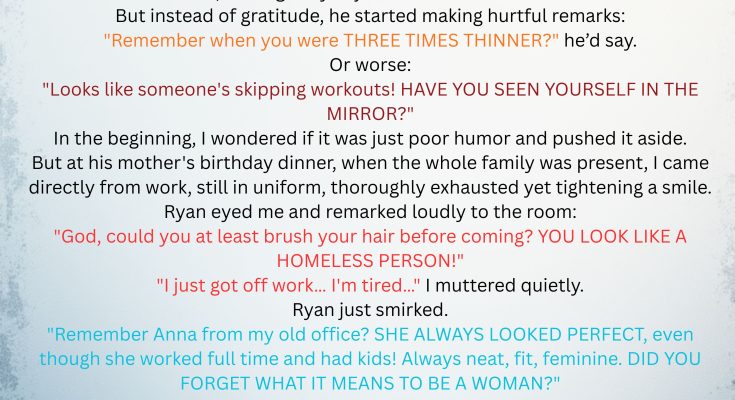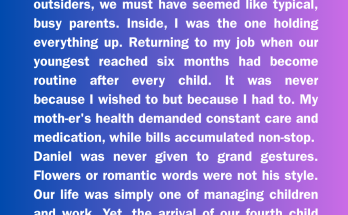When My Husband Mocked Me at Dinner
I had been looking forward to that evening for days. I dressed carefully, practiced a few light conversation topics, and hoped for a warm night with my husband and his friends. What I didn’t expect was to become the punchline.
We sat down to eat and the conversation flowed—until he noticed I didn’t know something small, something he assumed everyone should know. He laughed loudly, then added a joke at my expense. The table followed. I smiled at first, trying to keep the mood light, but the jokes kept coming and they grew sharper. Each laugh felt like a small cut; my face burned and my appetite vanished.
I tried to laugh along, because that’s what you do when you don’t want to make a scene. Inside, I felt exposed and small, like everyone was watching me fail. The worst part wasn’t the joke itself but how easily he turned me into entertainment. When the laughter died down, he didn’t check in or offer a quiet apology; he moved on as if nothing had happened.
After the guests left, I couldn’t hold it in. I told him how humiliated I felt, how the jokes had made me retreat into myself. He shrugged and said I was being too sensitive. That dismissal hurt more than the jokes. It made me realize this wasn’t an isolated awkward moment; it revealed a pattern where his humor masked a lack of respect.
I decided I needed to be clear and calm. I explained exactly what his words did to me and why public mockery wasn’t harmless. I used specific examples so he couldn’t dismiss my feelings as overreaction. I asked for one simple thing: stop making me the butt of your jokes in front of others.
He listened, and at first, he was defensive. Then, slowly, he admitted that sometimes he uses humor to deflect or to feel in control. He hadn’t realized how it landed on me. He apologized, not with a shrug but with an honest, quiet “I’m sorry.” That apology mattered because it came with a promise to be more mindful.
Change didn’t happen overnight. There were slips—awkward jokes that needed correcting—but the tone shifted. He began to check himself before speaking and to apologize when he crossed the line. I learned that standing up for myself didn’t make me difficult; it made our relationship healthier.
Now, when we go out, he still likes to be funny, but he no longer uses me as the easiest target. I still love him, but I won’t accept being humiliated for a laugh. Setting that boundary changed how we relate and reminded me that respect matters more than a momentary laugh.

